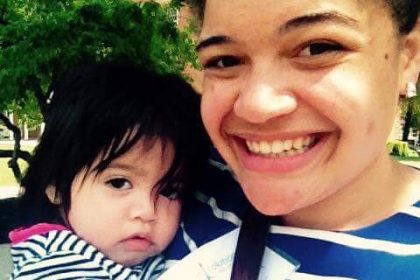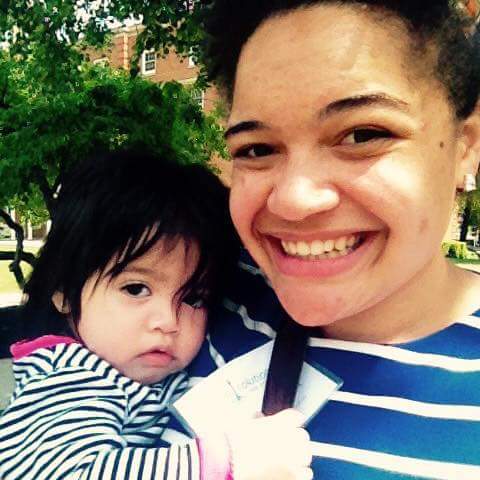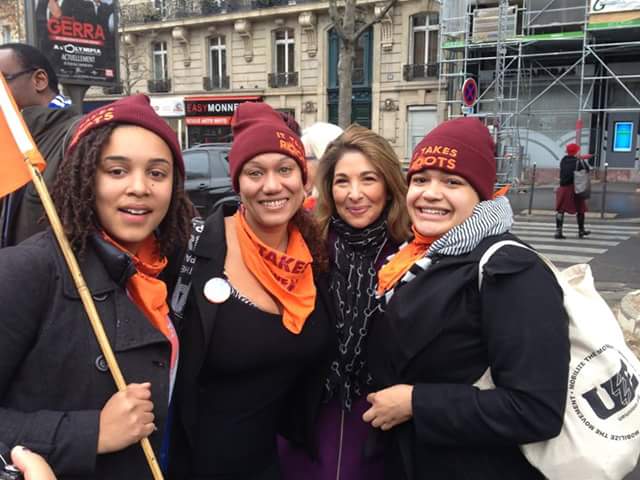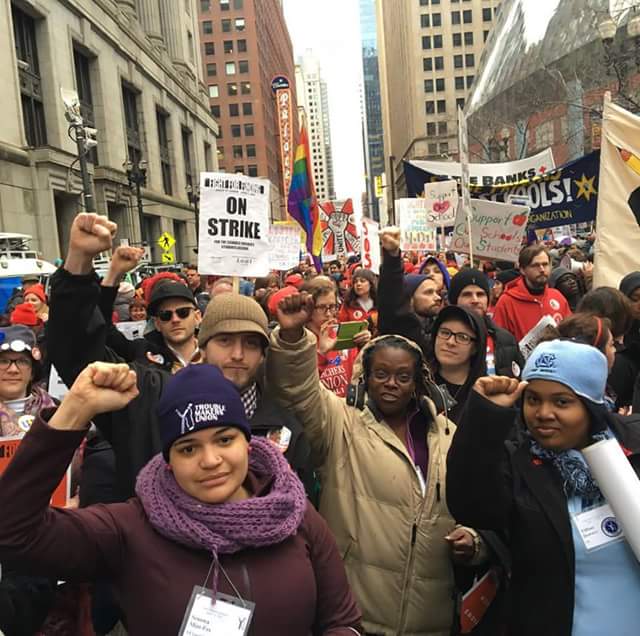
 If you had told me four years ago during my senior year of college that I would forgo my planned career as an international sustainable development consultant, and instead stay closer to home in Vermont working in community organizing and activism, I would have been in disbelief. I was never much of an activist in college. I did not understand the purpose of chaining yourself to a building or risking arrest, when likely little change would be made from the status quo of whatever was being protested.
If you had told me four years ago during my senior year of college that I would forgo my planned career as an international sustainable development consultant, and instead stay closer to home in Vermont working in community organizing and activism, I would have been in disbelief. I was never much of an activist in college. I did not understand the purpose of chaining yourself to a building or risking arrest, when likely little change would be made from the status quo of whatever was being protested.
Plain and simple, I watched injustices happen through my computer screen and did nothing more than complain from the sidelines. As a student of the environment, I knew the potential and very visible consequences of climate change. I saw homes in marginalized communities drowning in forceful hurricanes. I watched footage of literal food deserts forming before my eyes as droughts and sand storms destroyed farms and gardens around the world. I saw reports of countless shootings, many of them racially motivated. I heard the cries of former students unable to pay their bills due to low-paying jobs and unrealistic payment schedules.
The news was sad, sure, but there was something blocking me from really connecting to these stories. The devastation seemed far away, and I was thus far unaffected from the fallouts. I lived in Vermont, the land of progressive liberalism, local food, smiling farmers, and breathtaking mountains. Nothing adverse happened here. Everything was and will always be wonderful.
Then, I finished school and began my idealistic jaunt into adulthood. I applied to jobs in my field and got…well nothing. I was disappointed and lost. I found a job at my local food cooperative, and things started to change. I still remember my first week at the co-op, where a very wise and wonderful co-worker introduced me to the labor union that represented non-managerial workers in the store. I was confused and skeptical at what the union stood for and who it truly represented but I signed a union card and waited, as usual by the sidelines for someone to tell me what to do.
I quickly learned over the next few months that this was the very wrong thing to do. The only thing I was told was that if I wanted something done, I had to propose a plan. I would have help of course, but I needed to take the initiative. This landed me in a peculiar situation where suddenly I had all of this potential power afforded to me as a worker union member (my union’s slogan is: The members run this union) and a paralyzing fear that if I took initiative on an issue that bothered me within or outside of the workplace, that I would not be listened to, and worse, I would be laughed out of the room.
Shortly after having these thoughts, a co-worker of mine suggested I become a shop steward (a union member who represents other workers during discipline meetings with management). You have a very commanding presence they said. I said I would think about it. And I did. For one of the first times in my life I took initiative in a completely unfamiliar realm. I became a shop steward. I went to union meetings, and I got angry. Why weren’t we making livable wages in a workplace that prides itself on being an industry leader for good jobs and benefits? Why were workers being denied promotions because they did not fit the image of who should have that particular job? Why were members of other locals (each ‘shop’ within a particular union is called a local) being discriminated against in similar ways? Why were members of other unions and other worker-driven organizations, who were trying to organize equitable workplaces being oppressed in various ways both big and small? Suddenly it clicked, and my activism was born.
 Unions run on solidarity, connecting the local issues within workplaces with greater national and international social struggles. This approach makes these big picture issues of climate change, racism, and economic marginalization relatable. As a food chain worker, I should be able to afford the food that I sell. I should be able to have access to arable land to grow the produce that is deemed good for my health so that I do not have to run up a tab in medical bills. Ideally those bills if they do occur should be covered by health insurance, which I should not have to pay for out of pocket.
Unions run on solidarity, connecting the local issues within workplaces with greater national and international social struggles. This approach makes these big picture issues of climate change, racism, and economic marginalization relatable. As a food chain worker, I should be able to afford the food that I sell. I should be able to have access to arable land to grow the produce that is deemed good for my health so that I do not have to run up a tab in medical bills. Ideally those bills if they do occur should be covered by health insurance, which I should not have to pay for out of pocket.
So, I started to get involved with various social justice organizations, helping to organize around fair working conditions for migrant dairy farmworkers, livable wages for workers everywhere in Vermont, and finally, but likely most importantly, racial justice coalition building. I became frequently frustrated at the roadblocks between class and race, and the tendency for people I spoke to interchange the two concepts. I heard the thoughts often: Racism doesn’t exist in Vermont, or well, it isn’t about race really, it is about class.
I am only going to say a couple of things on these thoughts. Racism exists everywhere, especially internalized racism in the hearts and minds of people who are still in denial about the existence of racism. Class and race are related, but in my journey into organizing and activism, I have found that racism has all of the components of classism, but with extra layers of oppression added (two people are driving side by side, one white identifying and one black identifying, both are speeding, who is more likely to be pulled over?). It is also my belief that racism cannot be entirely understood unless it is felt; and if you are a white identifying person, regardless of your social and class status, you have the privilege of not ever directly feeling racism. But, you can be an ally. You can get involved in organizing and activism around issues that inspire and frustrate you, and you can recognize that people of color involved in these issues are likely struggling disproportionally because of the color of their skin.
The point is this: struggle is about unity and unity is about struggle. The issues we struggle with, within our food system are connected to issues about racism, classism, and climate change, along with a myriad of other struggles that make up the big picture of this system of injustice. The only way to fight and overcome these struggles is to plug in, wherever you’re at and unite with others facing similar hardships. Do not sit by the sidelines and think that these issues do not affect you, because they do. You are either perpetuating the system of injustice, or you are fighting it by helping to build a world free from these injustices. Which side do you want to be on?
Senowa Mize-Fox is a food-chain worker and racial justice organizer, who has an academic background in climate change policy and sustainable development. She lives in Burlington, Vermont.




